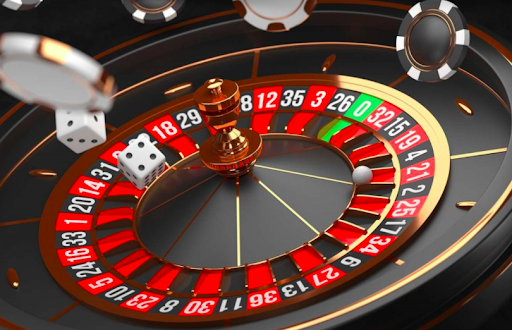Picture an age where a mere game could decide between life and death. The world of 17th-century death roulette is neither documented nor remembered in gambling history. In this post, we will try to dissect the reasons behind this strange form of entertainment, how it was integrated into society, and why it has been forgotten for so long. If you are interested in history, gambling, or looking for new stories around which you can create content, then this story is worth your time.
Table of Contents
Historical Context
The Origins of Gambling in Europe
Gambling has been part of human society for a while, but it gained substantial recognition at some point in the European Renaissance. This generation noticed the upward push and unfolding of different forms of playing, including roulette, derived from a few ancient Italian and English games.
Social and Cultural Elements of Gambling in the Seventeenth Century
Gambling became not just a leisure pastime, as it cut through various social classes. One may want to have noticed people gambling for money almost anywhere, from palaces to taverns. However, one of these situations concerning playing posed moral dilemmas that contributed to creating many extra appalling types like “death roulette.”
Dark Side of Entertainment
Birth and Rules of Death Roulette
Death roulette was no ordinary casino game. Contrary to the present-day model of roulette, which best takes away your money, it involved severe stakes, including lifestyles themselves. It has become commonplace for gamblers to make bets with their personal lives in place of cash. Simplicity characterized its regulations, yet they have been bloody—losers faced up to modified roulette wheels whose effects were deadly.
Society’s Reaction and Moral Implications
Some individuals embraced demise roulette as an remaining take a look at of valor, while others noticed abominations in it. Society’s response was bipolar; ambitious men were well-known, whilst moralists condemned all of them after seeing what they did. As such, elements like these introduced various interpretations of man’s dignity vis-a-vis entertainment conditions, giving deeper meanings to this darkish art.
Forgotten History
How Death Roulette Vanished from Historical Records
Death roulette misplaced its area in public reminiscence and remained a little-regarded sport for a while. This can be attributed to some factors, including social changes, prison constraints on gambling, and increased focus on more humane leisure. This obscure length was blanketed up via history books, with very few allusions right here and there.
The Recent Rediscovery and Its Impact
Historians have recently observed references to death roulette in vintage manuscripts or letters, mainly to the renewed hobby in such games of danger. This has opened new angles, disclosing hidden depths of human nature regarding risking to sense the adrenaline rush once more.
Modern-Day Analysis
Similarities Between 17th Century Death Roulette and Modern Gambling
Though modern gambling has nothing in common with the lifestyle of life problems that happened throughout the “demise roulette time,” they undergo some similarities. Both own dangerous elements, exhilaration, and the possibility that humans will lose plenty of money they’d gained earlier. The records of the demise of roulette explain how our view of the sport of chance has changed over the years and provokes arguments with approximately satisfactory judgments regarding it these days.
The Importance of Preserving and Learning from Forgotten Histories
History is a woven tapestry of innumerable strands, every with its own narrative. The story of dying roulette in the 17th century emphasizes that we need not discard any element of our dark beyond. Forgetting these records allows us to recognize human behavior, societal customs, and cultural modifications.
Conclusion
Recap of the Significance of Seventeenth-Century Death Roulette
It vividly indicates how humans can move for amusement or enjoyment, as a story about dying roulette depicts. It is an interesting but cautionary tale about humans’ darker characteristics and moral troubles.
Final Thoughts on the Enduring Legacy of Historical Games
These historical games, benign or brutal in nature, provide a glimpse into our past. They reflect the values, fears, and desires of the players. The emergence of seventeenth-century demise roulette adds any other size to our knowledge of history, demonstrating that even the most gruesome testimonies have lessons.
Further Exploration
If you found this story interesting, then delve deeper into ancient games performed during those times and how they influenced societies. Participate in debates, study similar books about history, and join businesses that are obsessed with this subject. There are many untold tales from yesteryears ready to be determined and shared.
To enhance our gift instances, whilst paving the way for a far brighter future via information on those forgotten narratives again.


